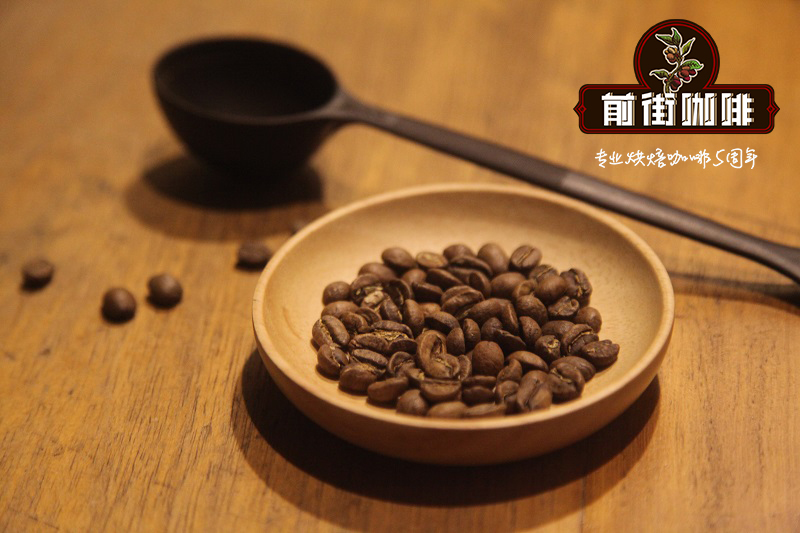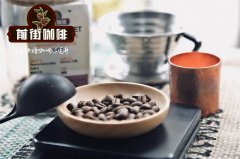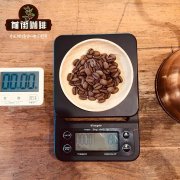Story of poli processing factory in poli village, Ethiopian boutique coffee, sweet and delicate sun Yega Xuefei

Professional coffee knowledge exchange more coffee bean information please follow the coffee workshop (Wechat official account cafe_style)
'fermented fruit, sweet and delicate sun Yega Chuefei 'sweet and charming, with cranberry, sweet orange taste, supple and delicate taste, sweet finish with honey!
P2 ▲ production Information:
Country: Ethiopia / Ethiopia
Producing area: Yega Sheffield Cochel town / Yirgacheffe Kochere Woreda
Producer: Poli Village small Farmer & Baudi treatment Plant / Boji Kebele & Bonde Factory
Altitude: 1800 Murray 2200 meters
Variety: Heirloom
Treatment: solarization / Natural
Baking degree: shallow baking
On the left of P3 ▲ is the front of the sack, from top to bottom: Kerchanshe Trading PLC is the exporter, Natural marks this batch as solarization, Yirgacheffe Grade 1 represents the highest level of ECX, Kochere Bonde represents the Podi processing plant in Kochel, and Crop 2018 indicates the year of the production season. The following batch numbers allow us to trace the source of production through the exporter. On the right side of ▲ is the importer's information. Linking Coffee is our main raw bean trading partner!
Although the linen bag of P4 ▲ Ethiopian coffee is not as beautiful as that of Central America, it also has a moisturizing plastic bag, which is standard for high-quality coffee and can be moisture-proof and fresh-keeping.
P5 ▲ opens the plastic bag, the rich fruit fermentation aroma comes to the nostrils, the bean body color is yellow, it looks very delicious!
P6 ▲ sun treatment of coffee cherries is particularly demanding, must be red, ripe fruit, and then carefully selected to remove defects.
The P7 ▲ was then laid out on an elevated net bed and dried in the sun for 2 weeks. Finally, when the water content is about 12%, the coffee cherry looks like a dry wrinkle, purple and black, with a rich sweet smell of dried fruit, so it's done!
▲ Poli Village (Boji Kebele) is located in the town of Kochere Woreda, about 15 kilometers away from the busiest town in the producing area. P8 ▲ in 2014, Israel Degfa set up a treatment plant here and named it Bonde Factory after Water Source Bonde River, only 1.5km from the famous Biloya cooperative, where farmers are free to choose to sell coffee cherries to cooperatives or processing plants, so private processing plants officially become competitors to cooperatives.
P9 ▲ Israel Degfa holds regular meetings with farmers, in addition to providing planting technical support, but also sets quality standards, "high quality = high price", to encourage farmers to pursue quality improvement! At present, 884 farmers in Poli village have joined the production team of Bodi processing plant.
P10 ▲ started a cooperative movement in Ethiopia in 2000, which not only promoted the rise of boutique coffee, but also took care of the lives of more small coffee farmers. ▲ has 25 cooperatives under the Yega Sheffield Cooperative Union (YCFCU) alone, most of which are set up in villages. With the growth of cooperatives and the rapid increase in output, the problem of quality gap between different batches began to appear. This has also spawned another wave of private processing plants in pursuit of higher quality. (the blue dots in the picture are cooperatives and the red dots are private processing plants.) ▲ Green Circle Isreal Degefa, now officially named Bodi treatment Plant (Bonde Factory)
P11 ▲ Israel Degfa (the third person from right in the picture), as a second generation coffee farmer, apart from deeply understanding the hard work and plight of small farmers, what is more important is his international view-Remove quantity to Quality-- replaces high output with high quality. His idea coincides with the trend of fine coffee. In ▲ 2013, Israel Degfa established Kerchanshe PLC and obtained the export license of coffee beans. From then on, he has the dual identity of producer and exporter. Greatly meet as consumers of our product traceability (Traceabitily) requirements.
P12 ▲ Israel believes that healthy seedlings are the first step in the successful cultivation of coffee. Cultivating excellent varieties with good flavor and strong disease resistance can make coffee farmers make enough profits. Only in this way will small farmers be more willing to invest in the coffee industry. Such a virtuous circle!
P13 ▲ Kerchanshe PLC has a nursery in Kochere where about 500000 coffee seedlings are cultivated and provided to local coffee farmers free of charge.
END
Important Notice :
前街咖啡 FrontStreet Coffee has moved to new addredd:
FrontStreet Coffee Address: 315,Donghua East Road,GuangZhou
Tel:020 38364473
- Prev

Ethiopia Nano Challa Cooperative Cooperative _ Agaro Coffee producing area has a special flavor
Professional coffee knowledge exchange more coffee bean information please follow the coffee workshop (Wechat official account cafe_style) FUGLEN COFFEE ROASTERS-NANO CHALLA / Ethiopia (Ethiopia)-Nano Challa Cooperative is a fairly new cooperative located in
- Next

Introduction of Ethiopian Hunkute Hungut coffee beans _ how to make Ethiopian coffee
Professional coffee knowledge exchange more coffee bean information please follow the coffee workshop (Wechat official account cafe_style) this bean comes from the Sidamo region of Ethiopia coffee producing region in Africa (Sidamo is a sizeable and major coffee producing area in Ethiopia), the Hanggut processing plant handles the raw beans, so it is named after the beans, and then in order to ensure the stability of the beans.
Related
- Detailed explanation of Jadeite planting Land in Panamanian Jadeite Manor introduction to the grading system of Jadeite competitive bidding, Red bid, Green bid and Rose Summer
- Story of Coffee planting in Brenka region of Costa Rica Stonehenge Manor anaerobic heavy honey treatment of flavor mouth
- What's on the barrel of Blue Mountain Coffee beans?
- Can American coffee also pull flowers? How to use hot American style to pull out a good-looking pattern?
- Can you make a cold extract with coffee beans? What is the right proportion for cold-extracted coffee formula?
- Indonesian PWN Gold Mandrine Coffee Origin Features Flavor How to Chong? Mandolin coffee is American.
- A brief introduction to the flavor characteristics of Brazilian yellow bourbon coffee beans
- What is the effect of different water quality on the flavor of cold-extracted coffee? What kind of water is best for brewing coffee?
- Why do you think of Rose Summer whenever you mention Panamanian coffee?
- Introduction to the characteristics of authentic blue mountain coffee bean producing areas? What is the CIB Coffee Authority in Jamaica?

